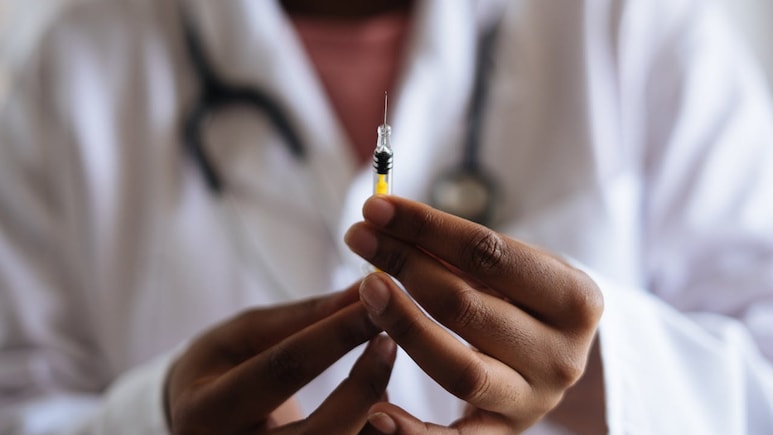
In what health authorities are calling a game-changer, the United Kingdom has approved a long-acting HIV prevention injection to be administered every two months as an alternative to daily oral pre-exposure prophylaxis (PrEP). The move could reshape global HIV prevention strategies and rekindle hope for countries like India, where new HIV infections still present a public health challenge. While the technology promises convenience and higher adherence, India faces its own set of hurdles, including regulatory pathways, cost, infrastructure and awareness.
What Does The New HIV Shot Do?
The newly approved injectable regimen uses the drug cabotegravir (also known commercially as Apretude), given once every two months. This contrasts with the traditional daily oral tablets used as PrEP, opening up a powerful alternative for people who struggle with tablets due to adherence issues, stigma or other barriers.
According to the UK's regulator, about 1,000 individuals a year are expected to benefit initially, specifically those unable to take daily oral PrEP. Health Secretary Wes Streeting described the approval as a major step toward the UK's goal of eliminating HIV transmission by 2030.
Why Does This Breakthrough Matters for India?
India has made significant progress in HIV prevention, yet challenges remain. The arrival of a long-acting injectable PrEP could address key problems: inconsistent tablet use, social stigma around daily medication, and access gaps for vulnerable populations.
However, translation into the Indian context is not straightforward. Approval through India's regulatory system, cost negotiations, supply-chain readiness, and targeted public-health messaging will all play a part. Moreover, while the injection offers convenience, it still requires clinical visits every two months, prompting questions about scalability in resource-constrained settings.
What Are The Challenges For This Injection In India?
- Cost and access: The injection's pricing has yet to be established in India, and as seen in other jurisdictions, high cost can limit reach.
- Infrastructure: Regular clinic visits for injections demand more from healthcare systems, especially in remote and underserved areas.
- Awareness and equity: Reaching populations at risk (such as key-affected groups) will require concerted effort in education, healthcare outreach and stigma reduction.
- Implementation strategy: India must determine who should be prioritised, how to monitor injections, and how to link this tool with existing prevention programmes.
What Are Experts Saying?
Advocates in the UK welcomed the injectable option as "transformative" for HIV prevention, especially for individuals facing adherence or access barriers. While Indian policy-makers have not yet announced a rollout plan, experts suggest the initiative underscores the need to expand PrEP options in India. The question now is not just if but when and how such innovations will reach Indian high-risk communities.
The UK's approval of a two-monthly HIV prevention injection marks a major milestone in the global fight against HIV. For India, it offers both hope and caution: hope in a new technology that could strengthen prevention efforts, and caution in the challenges of access, cost and implementation. As India maps its own path forward, the key will be ensuring that such innovations do not remain niche solutions, but become part of a comprehensive, equitable HIV-prevention strategy that truly leaves no one behind.
Disclaimer: This content including advice provides generic information only. It is in no way a substitute for a qualified medical opinion. Always consult a specialist or your own doctor for more information. NDTV does not claim responsibility for this information.
Track Latest News Live on NDTV.com and get news updates from India and around the world

